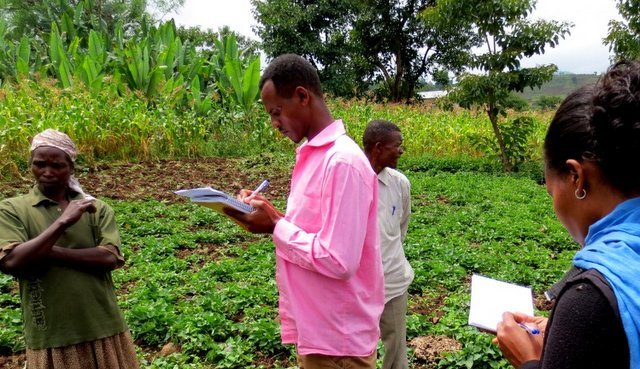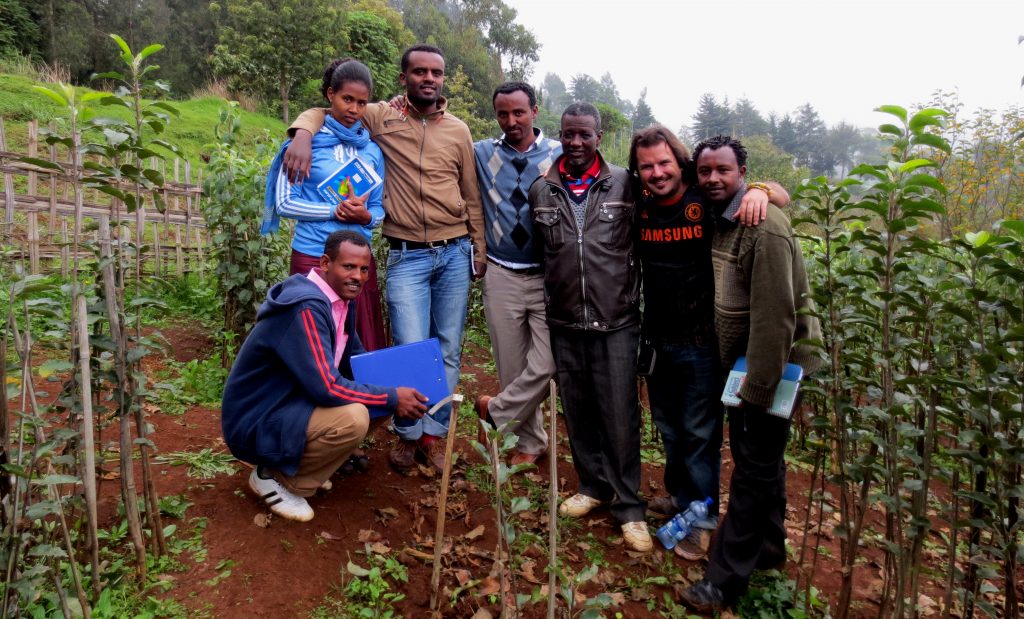Part of designing an impactful program is learning from other past and present programs’ experiences. There is a wealth of knowledge about “development” that makes up the archives of “development” implementations and theories. The typical ways organizations learn about “development” are by reading about a program in a report or hearing about a program from someone familiar with it. You might synthesize strengths and conclusions from such descriptions of different implementations and try to weed out the weaknesses. But there are important lessons that can’t be learned from a body of text or an elevator speech. To see an implementation in its context, animated with its personalities and accomplishments, is to get a deeper feeling for the rhythm and performance of an idea in its interaction with a community and its “beneficiaries.”
Nuru International and Nuru Ethiopia are using three distinct tools to weigh the strengths and weaknesses of previous program implementations and activities: “Research Packets,” “Best Practice Summaries,” and “Field Trips.” “Research Packets” are texts that describe other programs with detailed logic models, staffing models, budgets, and program summaries. “Best Practice Summaries” are descriptions of particular activities that make up larger interventions. Some examples of what a “Best Practice Summary” might describe are: organic maize farming, integrated agricultural development, irrigation, or milling cassava into flour. The third tool we are using is the “Field Trip” tool. This is a site visit to an agricultural intervention in the area where we are working. In our case, we used both a “Research Packet” and a “Field Trip” to read about and then visit projects that are being implemented in the Gamo Gofa Zone (which includes Boreda woreda, where Nuru International and Nuru Ethiopia are working).
The first project we visited was the Catholic Mission of Arba Minch’s project in Dega Chenge, about 40 kilometers from Arba Minch. This integrated agricultural development project focuses on diversifying livelihoods with a focus on empowering women to take a more central role in livelihood decisions activities. Our field visit to this project was very impactful for the entire Nuru Ethiopia team, as we learned about the role of cooperative granary stores in helping farmers who practice integrated agriculture (or conservation agriculture) get a decent price for diverse kinds of crops. Hearing the project coordinator of the project talk about the role of women in sustaining development was also very motivating for our entire group.
 The second project we visited was an Apple Project in Chencha, in the highlands on the way to Boreda. This project has been in operation for over 40 years and involves training local farmers how to cultivate organic apples for urban markets in Ethiopia. Our team was impressed to meet farmers who have completely changed their lives by participating in this project. One of the farmers we talked with had an expansive house with a satellite television. On the way out of his house, he even chuckled and told me that, as a result of becoming an apple farmer, he was now able to watch English Premier League football on the weekends. That is many steps above solving the problem of hunger! The project in Chencha was also interesting because it involved long-term planning and only enrolled and trained farmers with an interest in organic agriculture. The goal of the project is to export apples to markets in Europe. If you tasted one of their apples, I am sure you would agree that it is a realizable goal.
The second project we visited was an Apple Project in Chencha, in the highlands on the way to Boreda. This project has been in operation for over 40 years and involves training local farmers how to cultivate organic apples for urban markets in Ethiopia. Our team was impressed to meet farmers who have completely changed their lives by participating in this project. One of the farmers we talked with had an expansive house with a satellite television. On the way out of his house, he even chuckled and told me that, as a result of becoming an apple farmer, he was now able to watch English Premier League football on the weekends. That is many steps above solving the problem of hunger! The project in Chencha was also interesting because it involved long-term planning and only enrolled and trained farmers with an interest in organic agriculture. The goal of the project is to export apples to markets in Europe. If you tasted one of their apples, I am sure you would agree that it is a realizable goal.
 Field trips are not only interesting and enlightening, but they also provide a context for looking deeper into the nuances of projects and uncovering information that can’t be found in texts or verbal summaries. Such information, usually unmentioned and obscured, can prove vital to planning a project as complex and ambitious as Nuru International and Nuru Ethiopia’s. We look forward to synthesizing these field trips with our other tools and arriving at a solid program over the next few weeks.
Field trips are not only interesting and enlightening, but they also provide a context for looking deeper into the nuances of projects and uncovering information that can’t be found in texts or verbal summaries. Such information, usually unmentioned and obscured, can prove vital to planning a project as complex and ambitious as Nuru International and Nuru Ethiopia’s. We look forward to synthesizing these field trips with our other tools and arriving at a solid program over the next few weeks.

